We are all aware of the fact that excessive sugar consumption can result in health issues such as obesity and diabetes. However, it can often be challenging to identify the indications. Sugar is present in a wide variety of foods, making it tricky to determine the actual amount you are consuming. To assist you, here are 50 potential indicators that you might be ingesting an excessive amount of sugar!
Premature Aging
 If your diet consists of a high amount of sugar, then you will also notice your skin start aging prematurely. So, how does this work? When passing through the bloodstream, an excessive amount of sugar will come into contact with proteins within your bloodstream. This contact will then cause a reaction, thus creating advanced glycation end products. These will then negatively affect your body’s elastin supply as well as the ability to produce collagen. In fact, according to a study conducted in 2014, which the American Journal of Public Health published, sugar causes as much premature aging as smoking does.
If your diet consists of a high amount of sugar, then you will also notice your skin start aging prematurely. So, how does this work? When passing through the bloodstream, an excessive amount of sugar will come into contact with proteins within your bloodstream. This contact will then cause a reaction, thus creating advanced glycation end products. These will then negatively affect your body’s elastin supply as well as the ability to produce collagen. In fact, according to a study conducted in 2014, which the American Journal of Public Health published, sugar causes as much premature aging as smoking does.
Inflammation in the Body
 Excessive sugar consumption can be indicated by the presence of inflammation symptoms in your body. It is important to address inflammation seriously, as it can potentially harm your arteries and blood vessels, potentially leading to heart diseases, as stated by registered dietitian Silvia Carli. Furthermore, conditions like fibromyalgia and psoriasis might also stem from consuming excessive sugar. Studies have shown that consuming 1 to 2 cans of sugary soda daily results in heightened inflammation levels.
Excessive sugar consumption can be indicated by the presence of inflammation symptoms in your body. It is important to address inflammation seriously, as it can potentially harm your arteries and blood vessels, potentially leading to heart diseases, as stated by registered dietitian Silvia Carli. Furthermore, conditions like fibromyalgia and psoriasis might also stem from consuming excessive sugar. Studies have shown that consuming 1 to 2 cans of sugary soda daily results in heightened inflammation levels.
Constant Cravings for Food
 Consistently consuming excessive amounts of sugar can lead to constant food cravings. The reason behind this is that when you consume sugar, your pancreas releases insulin. However, this insulin response is temporary, causing your insulin levels to drop after a few hours. As a result, you may feel hungry again and develop an ongoing desire for food. According to Dr. Rameck, a certified doctor specializing in obesity and internal medicine, as well as a clinical researcher in obesity, your cravings will typically focus on foods high in sugar and carbohydrates that convert to sugar. This cycle then continues to repeat itself.
Consistently consuming excessive amounts of sugar can lead to constant food cravings. The reason behind this is that when you consume sugar, your pancreas releases insulin. However, this insulin response is temporary, causing your insulin levels to drop after a few hours. As a result, you may feel hungry again and develop an ongoing desire for food. According to Dr. Rameck, a certified doctor specializing in obesity and internal medicine, as well as a clinical researcher in obesity, your cravings will typically focus on foods high in sugar and carbohydrates that convert to sugar. This cycle then continues to repeat itself.
Lack of Energy
 Are you experiencing fatigue, sluggishness, or a general decrease in energy during the day? If so, it may be worth examining the amount of sugar you consume in your diet, as excessive sugar intake can contribute to low energy levels. Consuming sugar causes a temporary rise in insulin levels in the body, followed by a drop in insulin levels below normal levels. Maintaining stable blood sugar levels helps ensure a consistent release of energy. Conversely, if your blood sugar levels fluctuate, your energy levels may also fluctuate.
Are you experiencing fatigue, sluggishness, or a general decrease in energy during the day? If so, it may be worth examining the amount of sugar you consume in your diet, as excessive sugar intake can contribute to low energy levels. Consuming sugar causes a temporary rise in insulin levels in the body, followed by a drop in insulin levels below normal levels. Maintaining stable blood sugar levels helps ensure a consistent release of energy. Conversely, if your blood sugar levels fluctuate, your energy levels may also fluctuate.
Unexplained Bloating
 One of the most unappealing side effects that people most often struggle with is unexplained bloating. Well, here is an explanation for it. If you see signs of bloating without any reason, then it’s highly likely that you are consuming an excess amount of sugar in your daily diet. A diet that is high in sugar will lead to a belly that is bloated or bulging. This is because your stomach is full of both good and harmful bacteria. So, when sugar is consumed, the harmful bacteria consumes that sugar, which causes a reaction leading to gas formation. This gas is what causes your belly to bloat, which can even cause pain.
One of the most unappealing side effects that people most often struggle with is unexplained bloating. Well, here is an explanation for it. If you see signs of bloating without any reason, then it’s highly likely that you are consuming an excess amount of sugar in your daily diet. A diet that is high in sugar will lead to a belly that is bloated or bulging. This is because your stomach is full of both good and harmful bacteria. So, when sugar is consumed, the harmful bacteria consumes that sugar, which causes a reaction leading to gas formation. This gas is what causes your belly to bloat, which can even cause pain.
Weakened Immune System
 One of the most adverse effects and painful side effects of consuming too much sugar is the weakening of your immune system. This can be identified by your body catching colds and viruses much more easily than before. Our gut has both good bacteria and harmful bacteria, and it is our job to feed the good bacteria, which consumes foods that have a high nutritional value, such as vegetables. This is important as these good bacteria support the immune system of our body. By consuming foods that are rich in sugar, you are creating an environment within your body, which allows the harmful bacteria and yeast to thrive, which weakens the body’s immunity.
One of the most adverse effects and painful side effects of consuming too much sugar is the weakening of your immune system. This can be identified by your body catching colds and viruses much more easily than before. Our gut has both good bacteria and harmful bacteria, and it is our job to feed the good bacteria, which consumes foods that have a high nutritional value, such as vegetables. This is important as these good bacteria support the immune system of our body. By consuming foods that are rich in sugar, you are creating an environment within your body, which allows the harmful bacteria and yeast to thrive, which weakens the body’s immunity.
Trouble Sleeping
 After consuming a meal with a high sugar content, your body will temporarily increase its energy levels. An indication that you have eaten excessive sugar before going to bed is having difficulty falling asleep at the designated time. This can be challenging to discern, as you may feel extremely tired and drowsy due to the lack of energy caused by excessive sugar intake, yet still struggle to sleep. A 2019 study found that women who consumed meals high in refined sugar and carbohydrates were more prone to developing insomnia.
After consuming a meal with a high sugar content, your body will temporarily increase its energy levels. An indication that you have eaten excessive sugar before going to bed is having difficulty falling asleep at the designated time. This can be challenging to discern, as you may feel extremely tired and drowsy due to the lack of energy caused by excessive sugar intake, yet still struggle to sleep. A 2019 study found that women who consumed meals high in refined sugar and carbohydrates were more prone to developing insomnia.
Weight Gain
 Contrary to people’s beliefs, weight gain is not a direct cause of consuming sugar. Instead, the way it works is that sugar provides your body with what is known as empty calories. These calories are known as empty as even though you are consuming a high level of calories; your body is not receiving any important nutrition, such as protein, minerals, fiber, vitamins, and more. These important nutrients are what are needed by your body to perform well in terms of health. So, these empty calories, which are of no use to the body, then lead to weight gain when consumed in excess.
Contrary to people’s beliefs, weight gain is not a direct cause of consuming sugar. Instead, the way it works is that sugar provides your body with what is known as empty calories. These calories are known as empty as even though you are consuming a high level of calories; your body is not receiving any important nutrition, such as protein, minerals, fiber, vitamins, and more. These important nutrients are what are needed by your body to perform well in terms of health. So, these empty calories, which are of no use to the body, then lead to weight gain when consumed in excess.
Skin Breakouts
 A significant challenge associated with consuming excessive amounts of sugar regularly is unexplained acne, which affects a considerable portion of the population. While occasional acne spots can be found, persistent acne breakouts indicate a strong correlation with consuming meals high in sugar. The consumption of excessive sugar leads to inflammation problems and spikes in blood sugar levels. These two factors contribute to the development of skin breakouts, primarily in the vicinity of the chin and mouth.
A significant challenge associated with consuming excessive amounts of sugar regularly is unexplained acne, which affects a considerable portion of the population. While occasional acne spots can be found, persistent acne breakouts indicate a strong correlation with consuming meals high in sugar. The consumption of excessive sugar leads to inflammation problems and spikes in blood sugar levels. These two factors contribute to the development of skin breakouts, primarily in the vicinity of the chin and mouth.
Feeling Anxious
 Anxiety can be a lesser-known consequence of consuming excessive amounts of sugar, and it can be quite debilitating. Registered dietitian Trista Best highlights certain foods that are known to exacerbate or even spark anxiety symptoms. Refined carbohydrates, often containing high levels of sugar, like those typically found in convenience store snacks and pastries, fall into this category. These foods have the potential to trigger or intensify anxiety by causing a rapid increase in blood glucose levels, disrupting hormone balance and mood. In addition to anxiety, consuming too much sugar can lead to various other negative effects, further contributing to heightened levels of stress and anxiety.
Anxiety can be a lesser-known consequence of consuming excessive amounts of sugar, and it can be quite debilitating. Registered dietitian Trista Best highlights certain foods that are known to exacerbate or even spark anxiety symptoms. Refined carbohydrates, often containing high levels of sugar, like those typically found in convenience store snacks and pastries, fall into this category. These foods have the potential to trigger or intensify anxiety by causing a rapid increase in blood glucose levels, disrupting hormone balance and mood. In addition to anxiety, consuming too much sugar can lead to various other negative effects, further contributing to heightened levels of stress and anxiety.
Dental Decay
 Consuming excessive amounts of candy can lead to tooth decay. This is a sentiment that we have all been familiarized with since childhood, as it holds true for any meals that are high in sugar. A prevalent indicator of excessive sugar consumption is dental decay. According to the American Dental Association, when we consume excessive amounts of sugar in our regular diets, the sugar that our body absorbs becomes nourishment for the existing plaque bacteria on our teeth. This bacterial presence contributes to the production of acids that erode the enamel and result in tooth decay.
Consuming excessive amounts of candy can lead to tooth decay. This is a sentiment that we have all been familiarized with since childhood, as it holds true for any meals that are high in sugar. A prevalent indicator of excessive sugar consumption is dental decay. According to the American Dental Association, when we consume excessive amounts of sugar in our regular diets, the sugar that our body absorbs becomes nourishment for the existing plaque bacteria on our teeth. This bacterial presence contributes to the production of acids that erode the enamel and result in tooth decay.
Brain Fog
 The consumption of nutrient-rich food is crucial for the optimal functioning of both our body and mind. While carbohydrates, including sugar, are recognized as a source of energy for our brain, excessive intake can result in brain fog. So, how does this process occur? When we consume a high-sugar meal, our blood sugar levels initially surge and subsequently crash, causing brain fog that hampers alertness and focus throughout the day. This creates a cycle where our body craves more sugar, perpetuating the brain fog.
The consumption of nutrient-rich food is crucial for the optimal functioning of both our body and mind. While carbohydrates, including sugar, are recognized as a source of energy for our brain, excessive intake can result in brain fog. So, how does this process occur? When we consume a high-sugar meal, our blood sugar levels initially surge and subsequently crash, causing brain fog that hampers alertness and focus throughout the day. This creates a cycle where our body craves more sugar, perpetuating the brain fog.
Digestive Issues
 Excessive sugar consumption can lead to digestive problems, which can be quite bothersome. Research has established a link between high sugar levels and a sluggish digestive system, primarily due to the reduction of beneficial gut bacteria caused by sugar. According to registered dietitian Summer Yule, frequent consumption of sugary foods can displace nutrient-rich and filling foods. To address this issue, it is crucial to incorporate fiber-rich foods like oatmeal, nuts, apples, and beans into your diet.
Excessive sugar consumption can lead to digestive problems, which can be quite bothersome. Research has established a link between high sugar levels and a sluggish digestive system, primarily due to the reduction of beneficial gut bacteria caused by sugar. According to registered dietitian Summer Yule, frequent consumption of sugary foods can displace nutrient-rich and filling foods. To address this issue, it is crucial to incorporate fiber-rich foods like oatmeal, nuts, apples, and beans into your diet.
Constant Hunger
 If you constantly feel hungry despite regularly eating, it may be necessary to reassess your dietary choices. Experiencing constant hunger, even after having a meal a few hours ago, is a common indicator of excessive sugar intake. Consuming sugar-rich foods can cause your blood sugar levels to drop below normal after a few hours, prompting your body to send signals for more sugar.
If you constantly feel hungry despite regularly eating, it may be necessary to reassess your dietary choices. Experiencing constant hunger, even after having a meal a few hours ago, is a common indicator of excessive sugar intake. Consuming sugar-rich foods can cause your blood sugar levels to drop below normal after a few hours, prompting your body to send signals for more sugar.
Unexplained Joint Pain

Excessive consumption of sugar on a regular basis can cause joint pain, a distressing symptom without a clear explanation. Several studies have investigated the impact of high-sugar beverages on health, and they have successfully established a connection between these sugary drinks and arthritis. Notably, one study specifically highlighted that women who regularly consume sugar-sweetened soda are more prone to rheumatoid arthritis. Additionally, sugar is known to induce inflammation, which may result in joint inflammation due to elevated glucose levels in the blood caused by excessive sugar intake. Ankle pain, in particular, can be experienced as a consequence of this.
Difficulty in Losing Weight

If you have been experimenting with various methods to shed a few pounds but are facing challenges in achieving weight loss, it may be worth examining the content of sugar in the food you consume. This is because excessive sugar intake can impede weight loss progress. Sugar primarily offers empty calories that fail to provide a sense of fullness and instead contribute to increased food cravings. On the other hand, complex carbohydrates, present in vegetables, fruits, nuts, whole grains, fish, and other sources, have the ability to provide sustained fullness. Hence, when considering carbohydrate consumption, it is important to assess whether they are the type that converts into sugar upon digestion or the complex kind that offers essential nutrients to our body.
Loss of Muscle Mass

If you have started to lose the gains you worked so hard for in the gym, then it’s time to lay off the sugary drinks and food. This is because eating too much sugar can cause you to lose your built-up muscle mass. This association is backed up by science, where several researchers have successfully found links between muscle loss and regular consumption of sugar. So, how does this work? Once you have consumed an unnecessary amount of sugar that sugar starts to interfere with your ability to convert proteins into muscles. A study published within the Journal of Nutrition posted findings that showed that rats fed with sugary foods turned out to be much leaner and had more fat deposits than those given food, which contained complex carbohydrates.
Higher Blood Pressure

The general public is widely aware that consuming salt leads to an increase in blood pressure levels, which can have detrimental consequences over time. However, people often fail to realize that sugar has an even more adverse impact on blood pressure levels. Furthermore, excessive sugar consumption can swiftly lead to negative effects on blood pressure within a matter of weeks. Research indicates that each sugary beverage consumed increases the likelihood of developing hypertension by 8%.
Lack of Motivation

If you have begun to feel less and less motivated as time goes on for no reason, then we’ve got an explanation for you. It’s the fact that you might be eating too much sugar. This is because of the fact that once you have consumed a meal that is rich in sugar or converts to sugar once digested, you will feel a temporary boost in energy and mood. However, once that sugar leaves your system, your energy levels will drop much farther down than the baseline. This can cause you to feel tired and even cause a mood swing, which can cause you to feel less and less motivated to perform any task for the rest of the day.
Depression

Depression can be a significant consequence of consuming excessive amounts of sugar on a regular basis. This detrimental effect applies to both mental and physical well-being. It is not an exaggeration to say that consuming too much sugar can have negative consequences on your health, encompassing both physiological and psychological aspects. Numerous scientific studies have demonstrated that diets high in sugar, particularly sugar-laden beverages, can increase the risk of developing depression. This correlation is due to the inflammatory response triggered by high sugar intake, which can impair neurotransmitter pathways, resulting in decreased levels of dopamine.
Changed Taste Buds

When you eat sugary foods on a regular basis your taste buds will eventually change to better enjoy the foods with high sugar content. This means that over time things like broccoli, carrots or grapes may taste bland compared to sweet desserts and candy! The best way to avoid this problem is by limiting your intake of processed foods which have been loaded with added sugars. If you must have something sweet then consider eating fresh fruit or unsweetened baking ingredients which are healthier alternatives that won’t leave an unpleasant aftertaste lingering in your mouth.
You Start Suffering From Diabetes

Diabetes, a significant health issue causing elevated blood sugar levels, can be prevented by refraining from consuming excessive amounts of sugar and similar simple carbohydrates such as white bread or pasta. An array of delightful substitutes like applesauce, bananas, or spinach can be employed to replace sugary foods. Choosing a nutritious diet is the most effective strategy to steer clear of diabetes and other medical conditions necessitating stringent dietary modifications.
Cravings for More Sugar

Consuming too much sugar can cause cravings for more sugar because the sweet taste satiates the brain’s desire to consume additional sugary food items like candy and soda! The best way to avoid this problem is by limiting your intake of processed foods which have been loaded with added sugars. If you must have something sweet then consider eating fresh fruit or unsweetened baking ingredients which are healthier alternatives that won’t leave an unpleasant aftertaste lingering in your mouth.
Teeth Start Getting Yellow

Consuming an excessive amount of sugar can lead to the development of yellow teeth as the bacteria present in the mouth break down the sugar and generate acids that result in the discoloration of teeth. To avoid this, it is advisable to brush your teeth following the consumption of sugary foods or beverages in order to eliminate any leftover particles on the teeth’s surface. In cases where toothbrushing is not immediately possible, rinsing with water or chewing gum can be beneficial as they assist in removing sugars from the crevices between the teeth.
Frequent Mood Swings

Excessive sugar intake can lead to frequent changes in mood as it influences the serotonin levels in our brains, a neurotransmitter responsible for maintaining stable moods. If you’re dealing with depressive or anxious symptoms, it might be beneficial to cut out sugary foods from your diet and prioritize healthier alternatives for a quicker improvement in your well-being.
Feeling of Irritability

Are you easily angered? If your diet includes a lot of processed sugary foods, it is possible that you are frequently experiencing fluctuations in your mood! Consumption of foods containing added sugars can lead to a rise in serotonin levels in your blood, which in turn can induce emotional alterations. Excessive intake of sweets can also contribute to irritability due to their deficiency in essential nutrients required for maintaining optimal brain functioning. Next time you feel upset, consider opting for fruits instead of candy as a means to soothe yourself!
Joint Pain

The consumption of excessive sugar can lead to the development of gout and joint discomfort as it heightens blood glucose levels due to the surplus intake of simple carbohydrates. This in turn impacts the connective tissues responsible for supporting movement. To steer clear of these issues, it is advisable to adopt a diet that incorporates healthy fats and lean proteins. These food options offer more energy compared to sugars, but without the adverse effects on joints. If you frequently experience joint pain, it may be beneficial to abstain from consuming sugar, as well as other sweet substances such as honey, molasses, and cane sugar.
Fatigue and Tiredness

It could be challenging for you to accept that sugar, which is readily available, can actually be a cause of fatigue. However, numerous food options that contain high sugar content are deficient in other vital nutrients. The absence of these nutrients hinders your body’s ability to generate energy, necessary for optimal functioning. Foods loaded with added sugars typically lack amino acids, healthy fats, fiber, and other essential nutrients crucial for sound health. Consequently, relying solely on sugar for nutrition can leave you feeling tired and depleted of energy.
Regular Headaches

Numerous individuals who experience difficulty functioning effectively during the day may not realize that their headaches could potentially be attributed to sugar consumption! It may be unexpected, but an excessive intake of sugar can induce fatigue and drowsiness. In instances when the brain lacks glucose, it generates sensations akin to hunger, which frequently lead to headaches. If you suspect that the cause of your headache stems from something you ate, forgo pain relievers and consider consuming oranges as an alternative!
Feel Drowsiness

Did you know that drowsy driving causes twice as many fatal car accidents than any other form of distracted driving? These accidents happen because excess blood sugar levels lead to poor alertness and reaction times – even if you feel like you have been awake for hours. Foods with added sugars tend to disrupt the chemicals needed for proper brain function which can result in drowsiness or difficulty staying alert.
Struggling To Lose Weight

Consuming excessive amounts of sugar not only leads to weight gain, but it also hinders weight loss by increasing insulin levels and storing excess calories as fat. To prevent this, consider primarily incorporating healthy fats into your diet instead of sugars to utilize fat as an energy source. Additionally, when you indulge in sugary treats, ensure that each serving does not surpass the 30g carbohydrate threshold. The key to enjoying your favorite foods without gaining weight is to consume them in moderation.
Your Wounds Heal Slowly

Excessive consumption of sugar can impede wound healing since it enhances platelet aggregation, resulting in reduced blood circulation to wounds and consequent delayed healing. To prevent this, it is advisable to prioritize the intake of ample healthy fats such as avocado, olive oil, and flax seeds. Additionally, incorporating lean proteins into your diet will aid in swift recovery without any dietary hindrances.
Frequent Ear Infections
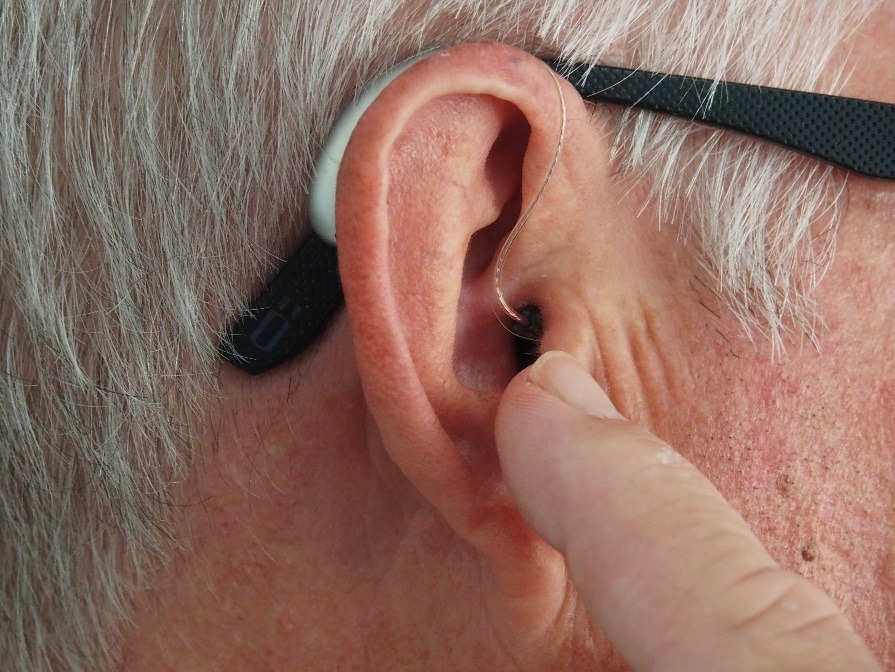
The consumption of sugar can aggravate ear infections due to the transmission of bacteria from the mouth to the inner ears through the Eustachian tubes when one chews and swallows. If you experience frequent ear infections, it is advisable to reduce your intake of sugary snacks to once a week or less, if feasible. Consider opting for chewable vitamins that incorporate natural sweeteners as an alternative to facilitate the reduction of sugar consumption.
High Cholesterol Levels

The consumption of excessive sugar can elevate blood cholesterol levels as sugars are converted into body fat, resulting in an increase in LDL (bad) cholesterol and a decrease in HDL (good) cholesterol. These changes can enhance the risk of heart disease. To prevent high cholesterol, it is advisable to reduce carbohydrate intake, particularly in regards to foods containing added sugars or syrups such as sodas and candy bars.
You Feel Crashed Out After a Workout

Have you ever experienced feeling exhausted after a brief exercise session? Have you ever pondered the reason behind this phenomenon? Well, it may come as a surprise to many, but this could be attributed to excessive sugar intake. We have previously discussed how consuming a high amount of sugar can result in fatigue. Consequently, this can contribute to feelings of lethargy and weariness. By reducing your sugar consumption, you may notice a significant change in your workout regimen.
You Have Difficulty Maintaining an Erection

Most men are unaware that this is an additional indication of excessive sugar intake. The inability to perform sexually can severely impact a relationship. Despite attempting various remedies, achieving a satisfactory erection may remain elusive. The culprit could be the elevated sugar levels in the bloodstream. Sugar weakens the arteries and obstructs areas that should be nourished with vital nutrients. Consequently, it becomes challenging for men with a high sugar consumption to achieve an erection.
You Feel Your Heart Isn’t As Healthy As It Used To Be
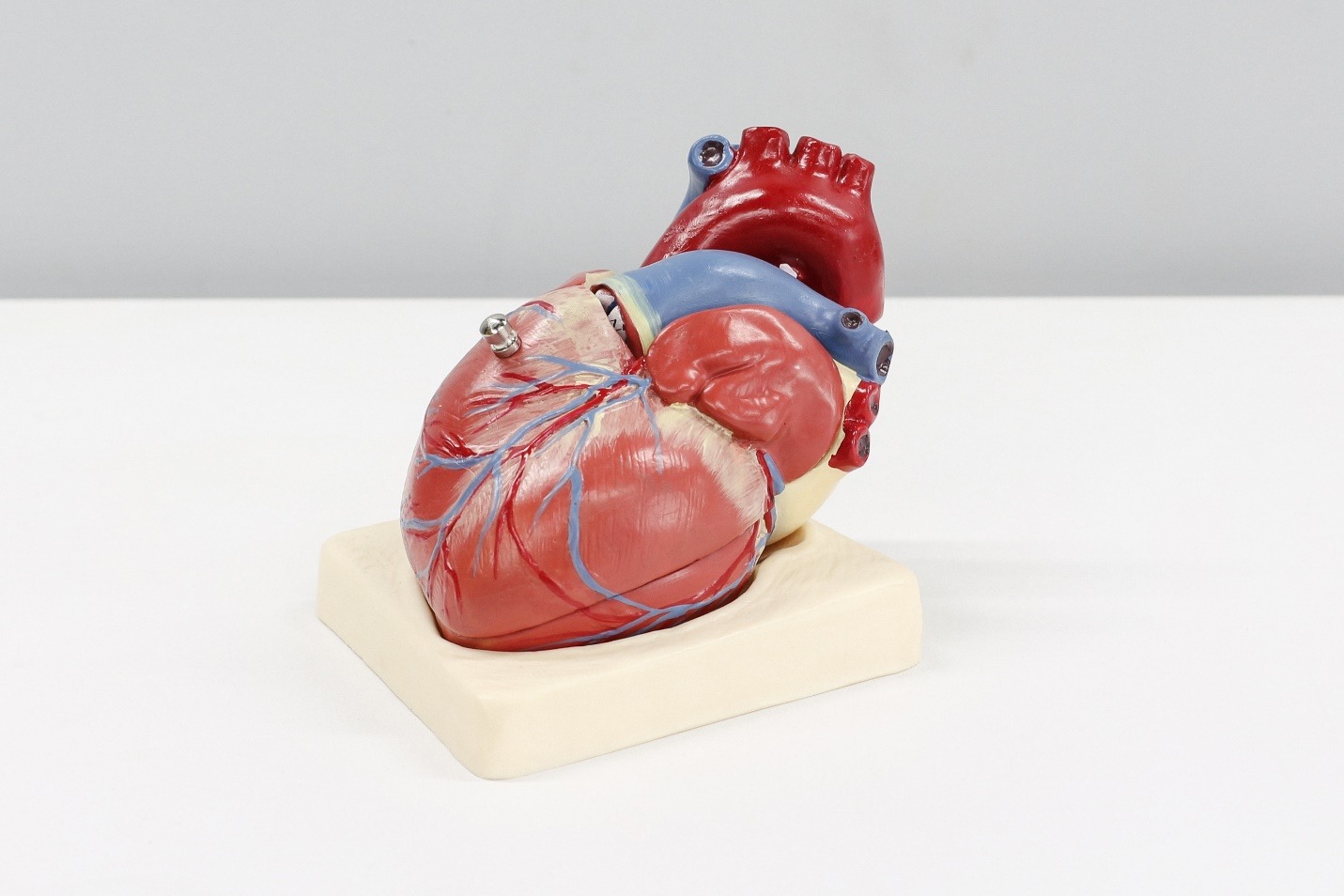
The consumption of sugar can negatively impact our heart health by generating free radicals that harm blood vessels and lead to the accumulation of plaque. To mitigate this, it is advisable to reduce sugar consumption, particularly by avoiding soft drinks and fruit juices. Opting for natural sweeteners can help in keeping track of your intake more easily, promoting a healthier heart. Additionally, excessive sugar consumption can also affect your heart rate.
Your Liver Is Enlarged
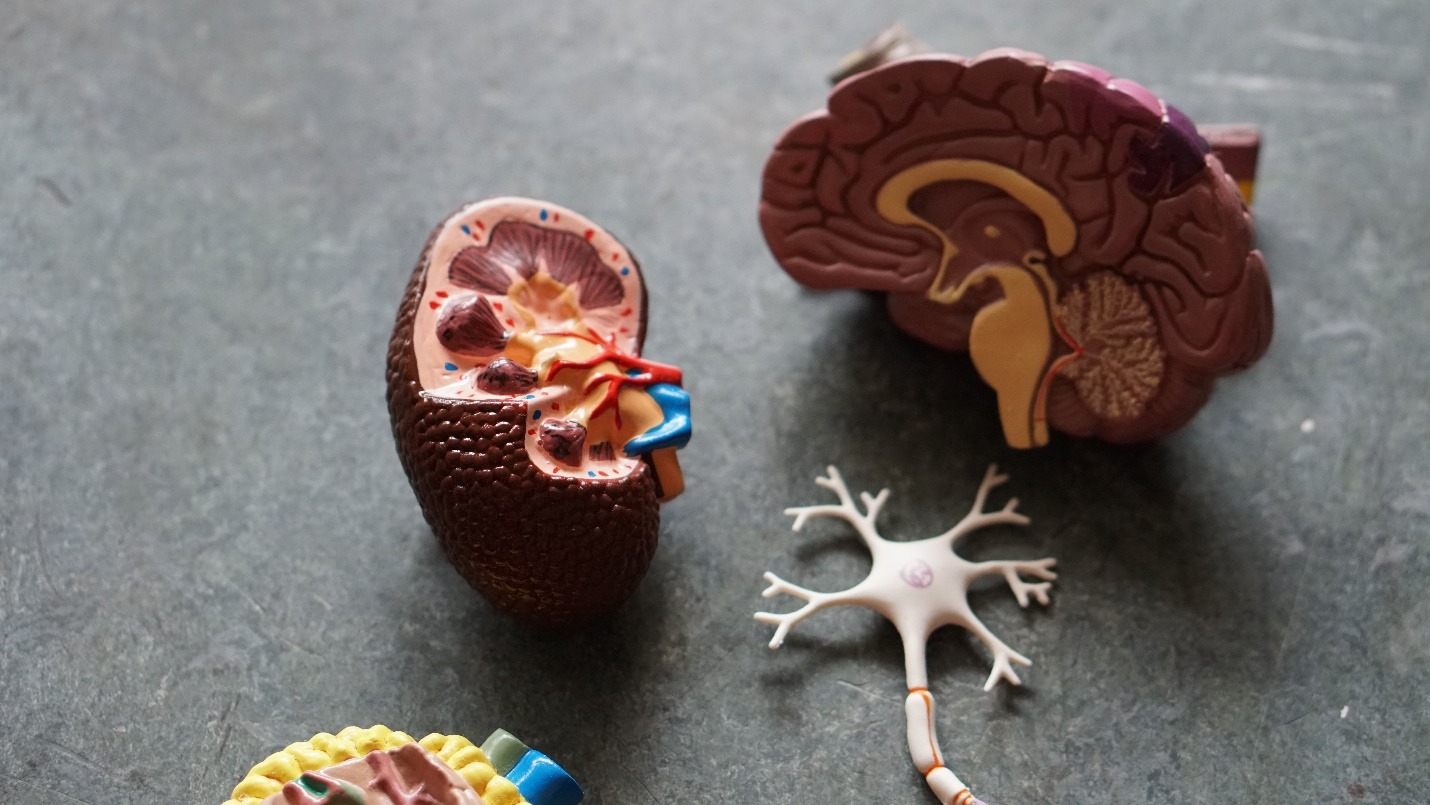
Fatty liver disease is a growing concern that impacts a significant number of people in the United States. This condition occurs when fat builds up in the liver cells, giving rise to various health complications. According to the American Liver Foundation, the main culprit behind fatty liver disease is not drinking alcohol but rather the consumption of too much refined sugar, which contributes to obesity and diabetes.
You Are Suffering From Kidney Problems
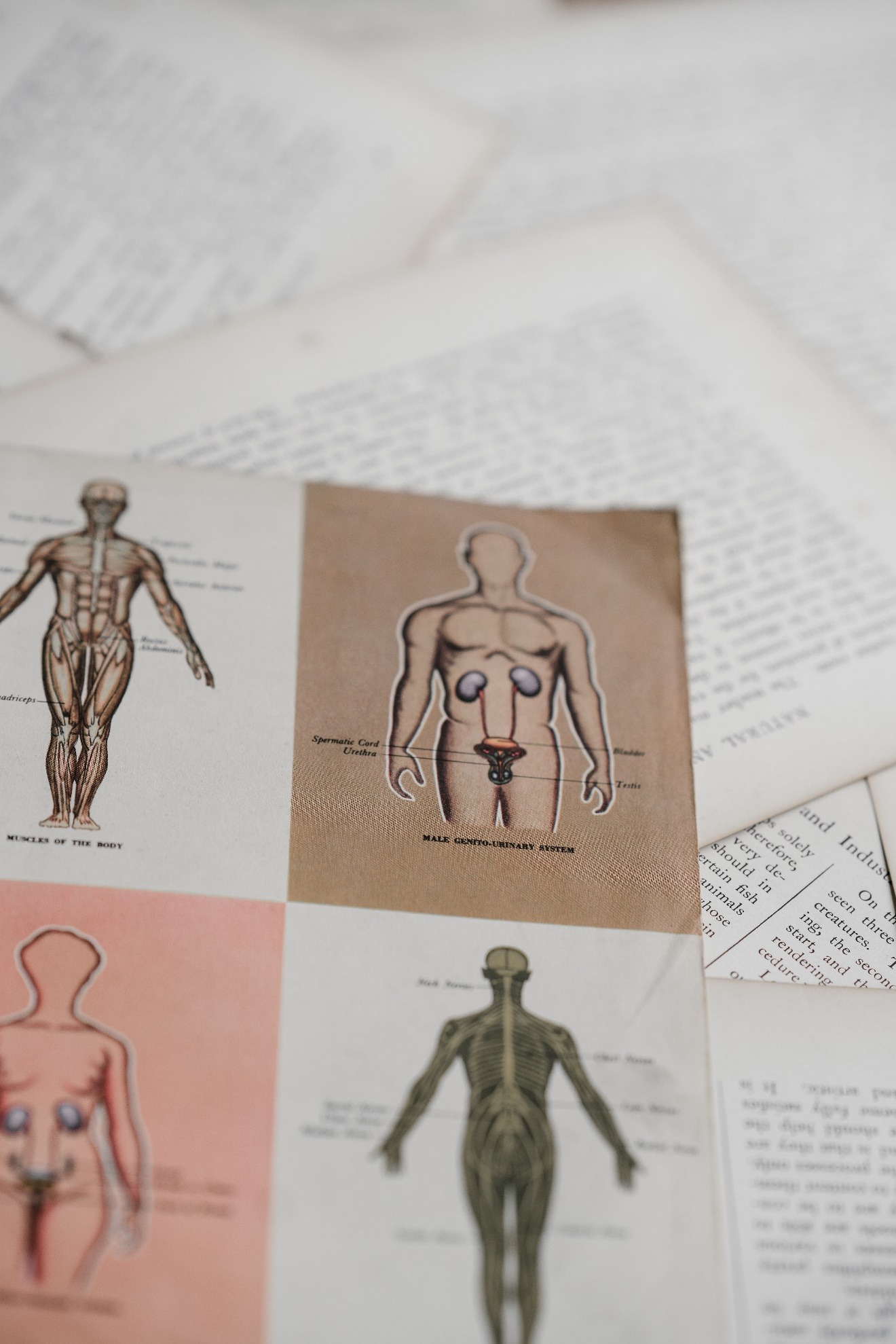
Consuming excessive amounts of sugar has been associated with kidney issues due to its potential to raise levels of harmful cholesterol, which can obstruct blood vessels in the kidneys. Additionally, sugar consumption is also known to contribute to the formation of kidney stones. To prevent kidney problems, it is advisable to restrict sugar intake, particularly in the form of sugary drinks like soda and fruit juices that contain high amounts of added sugars. Instead, prioritize the consumption of nutritious fats.
Cognitive Decline: Losing Focus
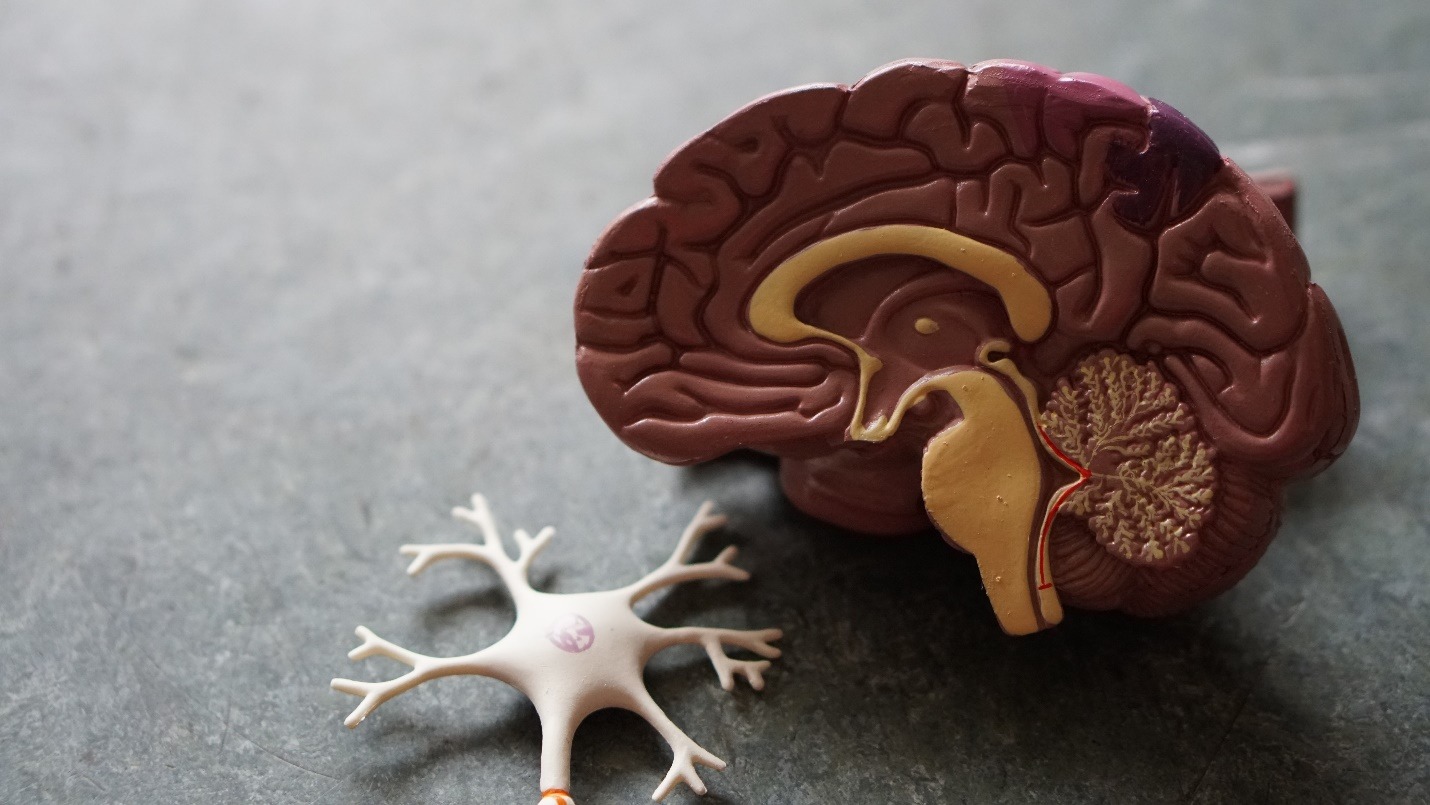
Do you find yourself getting distracted easily? Your inability to concentrate could be caused by an overload of sugar in your diet! Excess amounts of carbohydrates can cause dips in blood glucose levels which results in changes to mental focus. The brain needs a regular supply of glycogen to function properly – when this process is disrupted it to concentration problems! Keeping blood glucose levels stable with the appropriate amounts of protein, fiber and healthy fats can help prevent this.
Gum Diseases
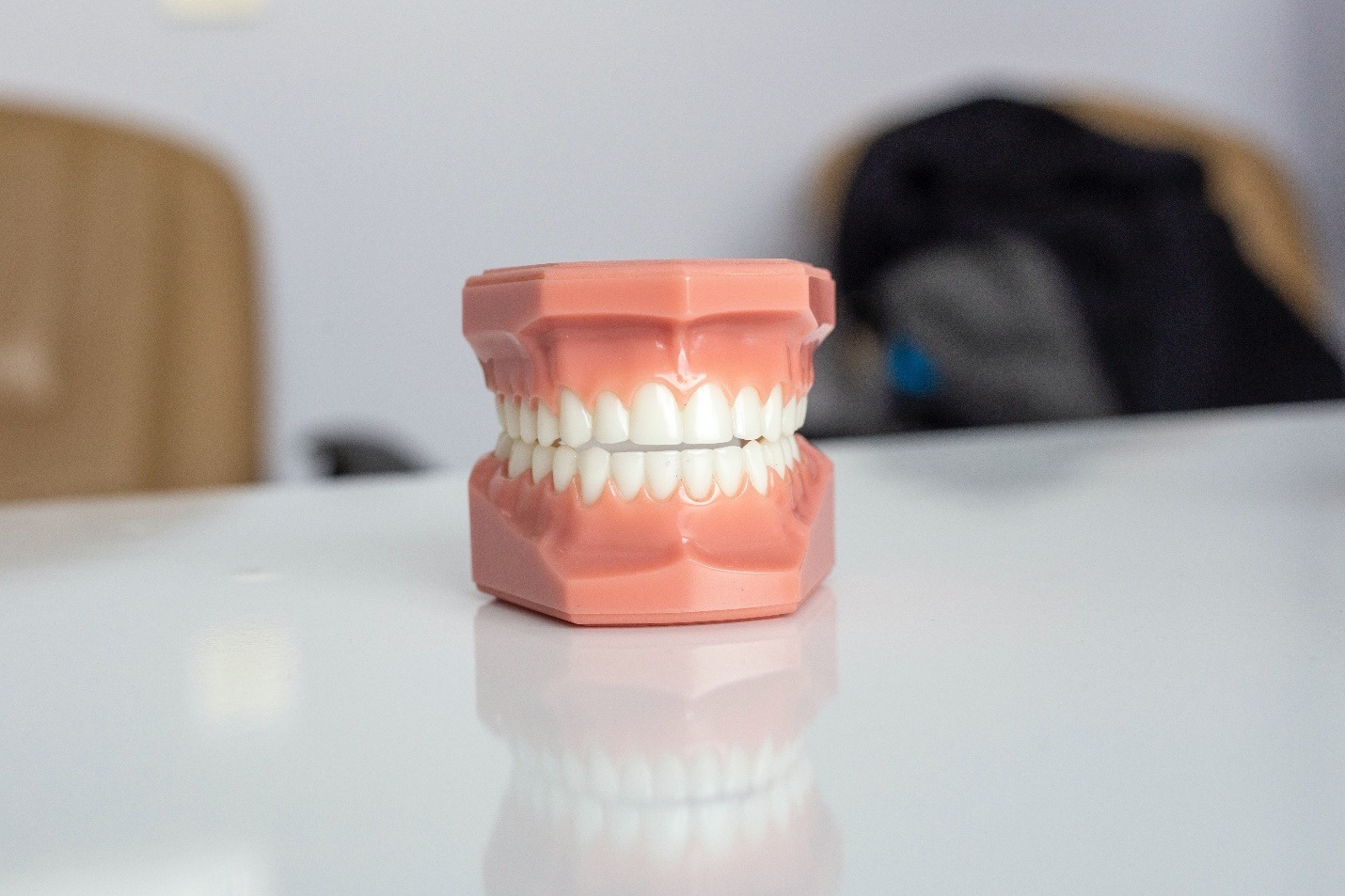
Gum disease can be caused by consuming excessive amounts of sugar, as it promotes the growth of bacteria that form plaque in the mouth. This bacterial growth can result in inflammation and tooth decay. To prevent this, it is advisable to steer clear of sugary snacks such as cakes, candy bars, and cookies. Moreover, indulging in too much sugar can have detrimental effects on your teeth. Therefore, if you wish to protect your dental well-being, it is important to limit your intake of sugary foods.
Increased Levels of Stress

Eating too much sugar can cause increased levels of stress because it increases our cortisol levels which affects mood! To avoid this try eating a diet consisting mostly of protein-rich foods like lean meats, vegetables and fruits. Also try to eat a lot of healthy fats in place of sugar to help maintain stable blood glucose levels so you don’t get stressed out by the time!
Your Body Isn’t Getting the Nutrients It Needs

Excessive sugar intake can hinder the absorption of essential nutrients by replacing them. To prevent this, it is advisable to limit daily sugar consumption to a maximum of 3 to 4 teaspoons. Additionally, it is beneficial to moderate your consumption of protein-rich foods while prioritizing the inclusion of fiber-rich foods in your diet. Neglecting these measures can result in weakness and disrupt your bodily functions.
Your Body Has Low Protein Levels
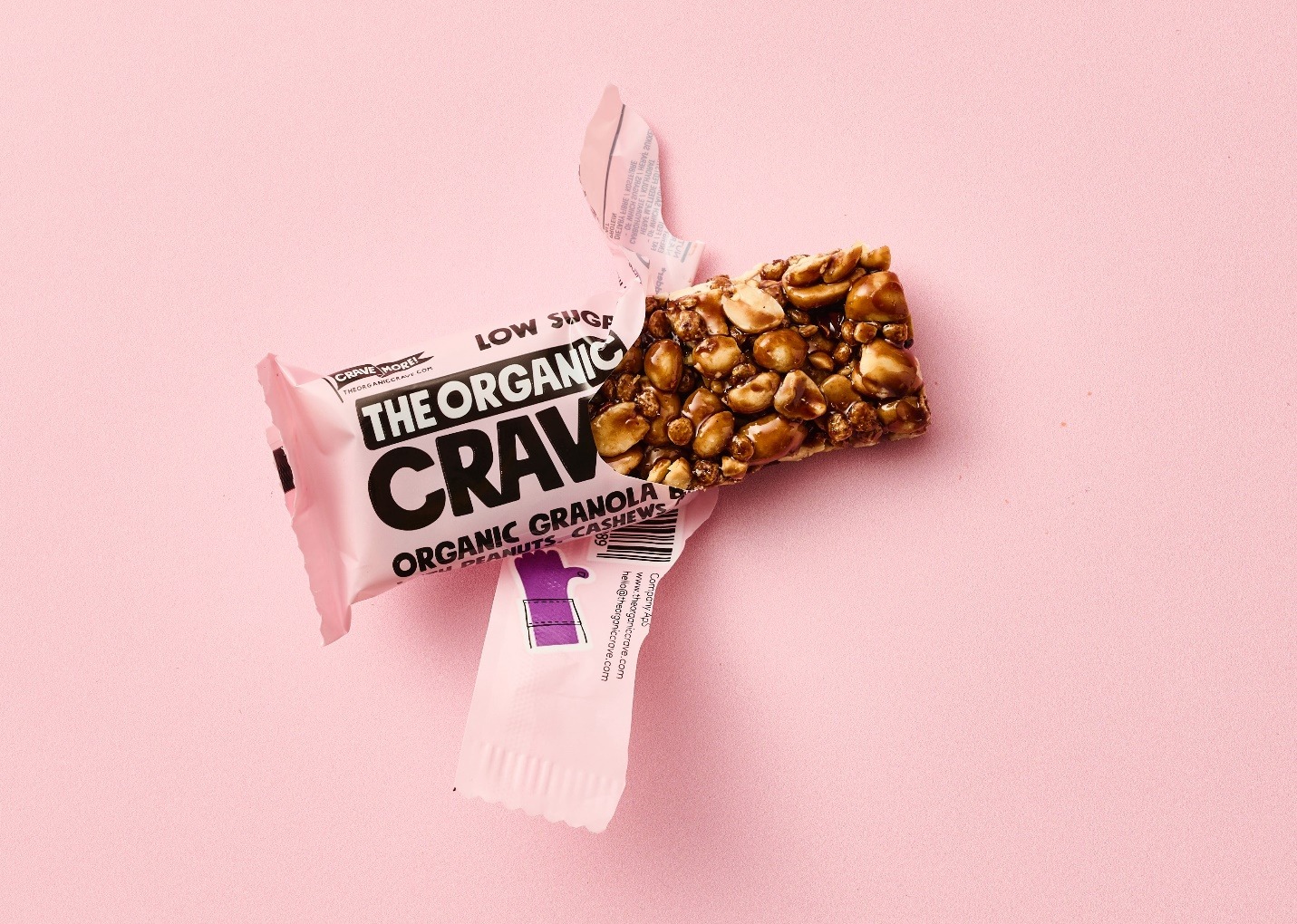
Excessive sugar consumption can lead to decreased protein levels as it triggers the excretion of this essential nutrient by the kidneys. To prevent this, it is advisable to limit your daily intake of table sugar to no more than 6 teaspoons. However, it is also important to moderate your consumption of protein-rich foods. Having low protein levels does not necessarily call for an immediate increase in protein intake.
Lose Your Morning Appetite

It is often stated that breakfast is the most crucial meal of the day. Nevertheless, if you frequently consume excessive quantities of sugar, it can lead to a loss of appetite in the morning. This can be particularly true if you consumed something sugary before going to bed without engaging in physical activity. When carbohydrates are not burned, the sugar content remains in the body and takes a significant amount of time to digest, resulting in a lack of hunger in the morning.
Acute Pancreatitis
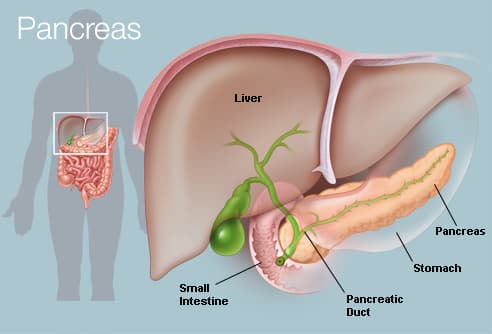
Indulging in sweets is something many people enjoy from time to time. However, a recent study suggests that consuming too much sugar can potentially lead to acute pancreatitis. This condition involves inflammation of the pancreas, which is commonly triggered by excessive alcohol intake or the presence of gallstones. Pancreatitis occurs when the pancreas is disturbed, causing uncontrolled activation of digestive enzymes that can harm the tissue. While the exact cause of this condition is often unknown, certain individuals may be more susceptible to developing it. This includes those with a history of alcoholism or chronic alcohol consumption, infected pancreatic stones or cysts, trauma or surgery involving the pancreas, elevated levels of triglycerides in the blood (hypertriglyceridemia), and people who have a high sugar intake.
Alzheimer’s disease

It seems that yet again, the role of nutrition in Alzheimer’s disease has been confirmed. Several researchers reported that they have found evidence that sugar can contribute to developing Alzheimer’s disease. So if you are facing early symptoms of Alzheimer’s disease then it is ideal to cut down on the amount of sugar you eat every day. It is better to start taking steps when the symptoms are in the early stage so the disease can be controlled and the first step in controlling Alzheimer disease is to cut down your consumption of sugar. It may not be easy, but it will be worth it.
Your Body Is Resistant To Insulin

Scientists believe that high glucose levels cause cells to lose their sensitivity to insulin – which itself makes blood glucose levels rise even more. Over time, if we’re consuming lots of carbohydrates each day (and especially those containing sugars and starches) the resistance increases until we need an enormous amount of insulin just for our cell to sense the glucose and absorb it. And since elevated blood sugar levels damage nerve fibers and blood vessels, we might expect many other negative consequences as well.
The good news is that we can reverse this process by choosing a diet very low in carbohydrates (below 60 grams/day, depending on your weight and activity). By curbing your carbohydrate intake you reduce the amount of insulin required to maintain normal blood sugar levels – and at the same time you lose excess water from inside cells because insulin blocks kidneys from excreting urine. Suddenly those effects of high-carbohydrate diets start reversing themselves.
Your Organs Are Taking a Hit

Excessive sugar consumption can lead to various harmful impacts on the body. Reducing sugar intake is crucial as it can affect every organ in your body. If you experience issues with your liver, kidneys, heart, pancreas, stomach, skin, or any other organ, it could potentially be attributed to sugar. Sugar is often an unrecognized culprit for these problems, either directly causing them or exacerbating other factors that contribute to these problems.
Excessive Thirst and Frequent Urination

Excessive sugar consumption can lead to increased thirst and frequent urination. The high levels of fructose found in processed foods are a major contributor to diabetes. Fructose, a type of sugar produced by the liver in response to high glucose levels, is often elevated in individuals with diabetes. This suggests a link between excessive sugar intake and the development of diabetes. Excessive urination is a common symptom of diabetes. While water or non-caloric beverages are typically chosen to quench thirst and provide hydration, consuming sugary drinks like soda, iced tea, and lemonade can actually make thirst worse. This can result in increased water consumption later in the day. Additionally, many people are unaware that sugary beverages do not effectively relieve thirst and can leave them dehydrated.

